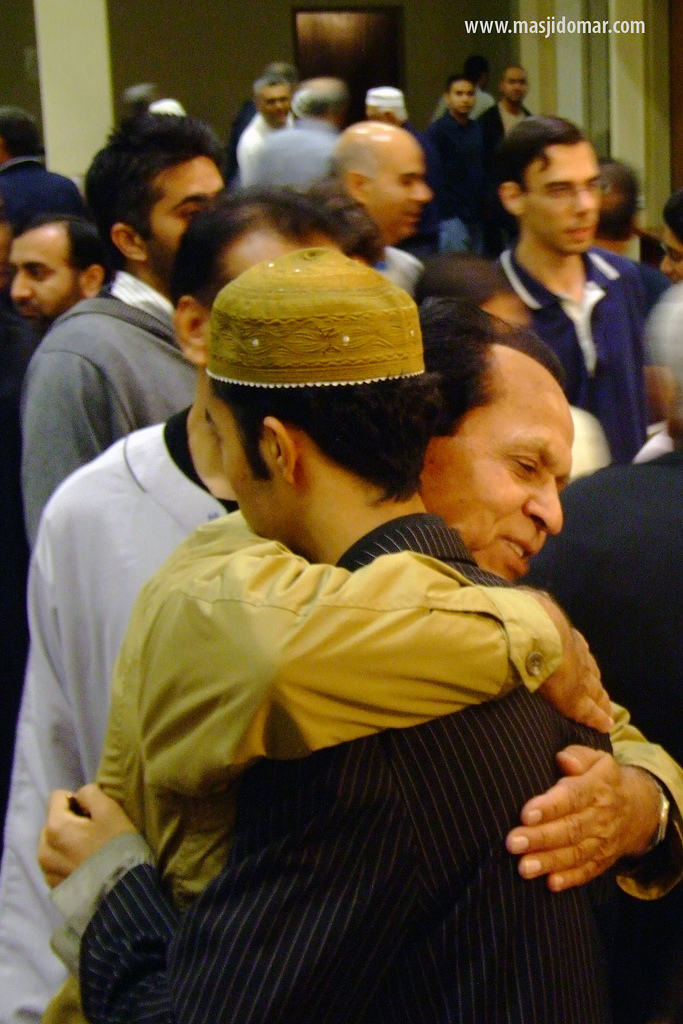Is Saying “Jumua’ Mubarak” A Bida’

The Question
Recently, I saw a lecture on YouTube with a man claiming that saying, “jumu`ah mubārak (a blessed Friday)” on Fridays is an innovation? Is that true?
The Answer
Scholars of fatwā (legal opinions) divided acts into worship and customs. Both are central to our faith, and scholars gave each a tremendous amount of attention. For that reason, the first Ph.D. granted at al-Azhar University in the 20’s was on Islam and Custom.
Customs and Cultures are Embraced by Islām
Custom is so important that it forms one of the five major axioms of Islamic law. Al-Qādi al- Hussein al-Shāf’i wrote, “Utilization of custom is one of the five principles that Islamic Law rests on.”
Imām al-Syūtti mentioned them in Kawkab al-Sāti saying,
“Certainty does not remove doubt, and Islam removes every harm.
Hardship brings ease and custom (for fiqh) is a reference point
A few added a fifth: that every act of a person is based his intention.”
Custom in the Tradition
`Abdullah bin Masūd used to say, “What the Muslims deem as good is good.”
In Imām al-Bukhāri’s collection of authentic hadīth (saying or tradition of the Prophet ﷺ – peace be upon him), under the chapter on commerce, we find an interesting title for the 95th section:
بَابُ مَنْ أَجْرَى أَمْرَ الأَمْصَارِ عَلَ مَا يَتَعَارَفُونَ بَيْنَهُمْ فِي الْبُيُوعِ وَالإِجَارَةِ وَالْمِكْيَالِ، وَالْوَزْنِ، وَسُنَنِهِمْ عَلَ نِيَّاتِهِمْ وَمَذَا هِبِهِمِ الْمَشْهُورَةِ
Chapter: Where there is no fixed judgement, the traditions and conventions of a community are referred to – Customs and Norms is an Important Part of our Faith
Commenting on this, Imām bin Hajar wrote, “The purpose of this title is to establish the reliance on custom in Islamic law.”
That is not to say that any custom is recognized by Islam. For more on that, consult a local scholar or see the books of usūl al-fiqh (principles of Islamic jurisprudence).
The Ruling on Customs and Day to Day Affairs is Permissibility
Imām Ibn Taymiyyah wrote, the foundations of Imām Ahmed’s school are two:
- Customs are permissible unless there is a clear text that forbids them.
- Acts of worship are forbidden (to invent) unless there is a clear text that allows them.
Then, he defined custom saying, “Customs are habits of people pertaining to food, drink, clothing, transportation, speech and other such normal day to day activities. Thus, they should not be forbidden unless by Allah or his Messenger ﷺ through an explicit text, a general one or a proper analogy. If not, then the general ruling for them is permissibility.”
We understood from Ibn Taymiyyah’s definition that customs divide into two parts: words and deeds.
Ibn Hajar said, “Custom plays a role in determining the explicit meaning of words.” Implying that if a person uses a word that is exclusive to his culture, the known custom is used to determine its implications. For that reason, Imam al-Dardīr noted that the Māliki’s coined an axiom, “Customs are like conditions.” From the important usage of words are greetings and salutations.
Greetings
Scholars agree that greetings fall under mu`amalāt(day-to-day activities), and they are part of customs that are related to speech. Since the general ruling on customs in permissibility, then greetings that are free of evil are considered permissible. For that reason, when Talha (a great companion of the Prophet ﷺ) greeted K`ab with the good news of the latter’s forgiveness, the former was not censured by the Prophet ﷺ, K`ab or the other companions (Allah be pleased with them all).
Based on this important principle and the large number of general texts that encourage us to speak well and be gentle to others, it is a stretch to say that such a greeting in an innovation. Imām al-Sakhāwi noted this in al-Tahina bi al-Shūr wa al-‘Ayād (Greetings Upon Months and Holidays) in greater detail.
May Allah bless us with tawfiq (success).
Suhaib Webb

